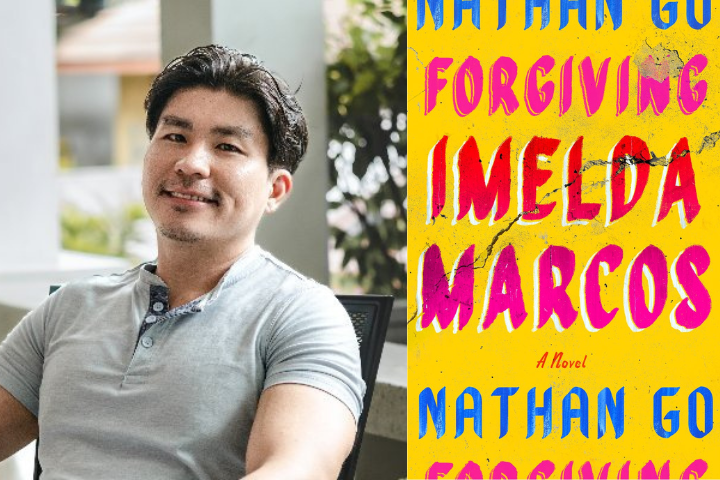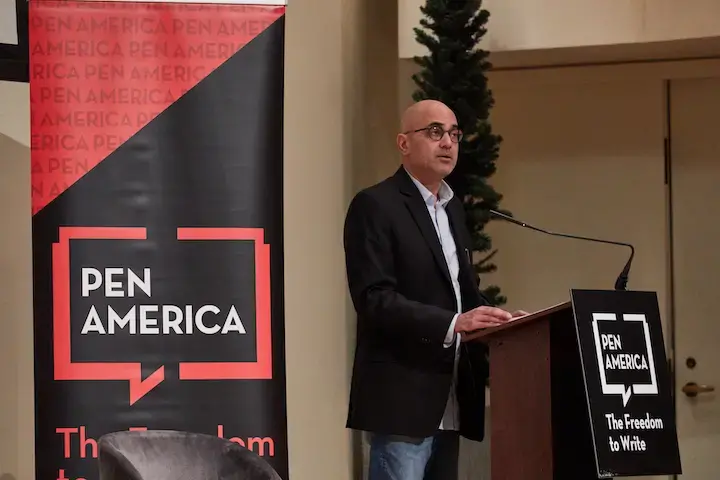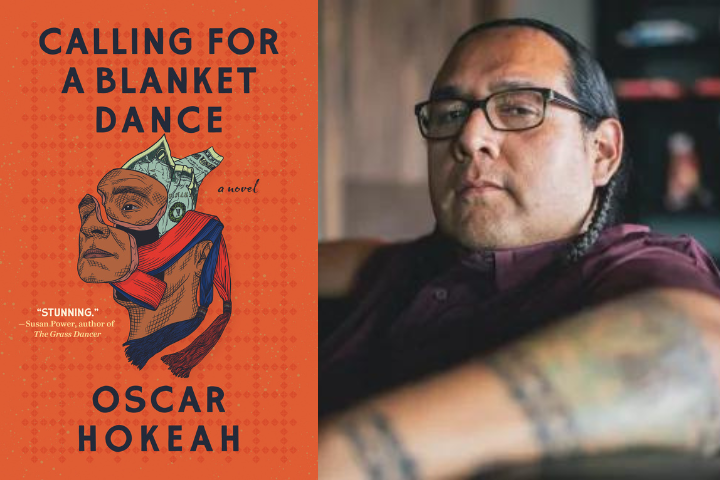‘The Work Has Not been Completed’: Emerging Voices alum Nathan Go on his time as a fellow, immigrant narratives, and fiction’s place in the current political climate

When Nathan Go was accepted as a PEN America Emerging Voices fellow, he was working as a paralegal in Los Angeles, unsure whether there was a future for him in writing.
Before becoming a fellow, he generally shied away from writing narratives that leaned into his identity and his own experience as a Filipino immigrant. “I didn’t want to write about the Philippines because I was really afraid that people might pigeonhole me or think, ‘Oh, you’re from the Philippines, write about the Philippines,’” he said. “I really resisted that.”
This has changed, though, and Go, a member of the 2012 Emerging Voices cohort, recently published his debut novel, Forgiving Imelda Marcos. The story weaves together Filipino political history with the personal narrative of a father and son, creating a deeply impactful story of what it means to forgive.
As a fellow, Go was mentored by Alex Espinoza, a writer and educator known for the novels Still Water Saints, The Five Acts of Diego León, and the book Cruising: An Intimate History of a Radical Pastime. Working with Espinoza introduced Go to narratives that embraced the immigrant experience.
“I think it really just exposed me to books that were focused more on the marginalized,” Go said, citing Espinoza’s novel Still Water Saints as an example.
Alongside the exposure to stories not prominent in his early education, the Emerging Voices Fellowship also provided Go with visible examples of what life as a writer could look like.
“What PEN Emerging Voices really did, to me, was expose me to a lot of authors and a lot of people in the industry,” Go said. “So I got a really, really good sense of what it was like to be a writer.”
For Go, the program solidified writing as a passion worth pursuing. “It really opened doors and convinced me that this was what I wanted to do.”
In a particularly polarizing moment in global history, Go believes “fiction has use in a way that news and nonfiction can’t.” It’s been more than a decade since his time as an Emerging Voices fellow, and in that time, Go had hoped the number of attacks on marginalized identities would have diminished. However, the current political climate feels more dire than ever.
“I feel like we are back to square one. We are back to talking about voices that need to be heard because of all the backlash around diversity,” Go said. This, in a way, makes the fellowship, and its mission to support underrepresented voices, all the more important. “It’s very, very clear that the work has not been completed yet.”





